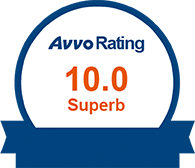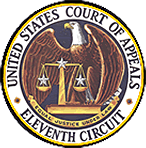
Your Case Deserves Immediate Attention - Call Hubbs Law Today
Motion for a Downward Departure in Miami
Downward Departure Sentencing Guidelines
During sentencing for a felony conviction in circuit court, a judge must evaluate your criminal sentencing score sheet. The prosecutor will generally prepare the score sheet and give a copy to the defense to verify that the defendant’s criminal record is accurate. After calculating the offense levels of the underlying charges, the offense levels of the defendant’s prior criminal record, and other potential enhancements, the score sheet will list the lowest permissible sentence, or “bottom of the guidelines” sentence.
The judge is required to, at a minimum, sentence you to the bottom of the guidelines sentence upon an open plea or a conviction at trial. However, Florida law lists several mitigating factors that could qualify you for a “downward departure” from the bottom of the guidelines sentence. If you are able to successfully argue to the judge that one of the statutory mitigating factors applies to your case, the judge will have the discretion to go below the bottom guidelines sentence giving you the ability to avoid a prison sentence.
If you or someone you know has been sentenced to the bottom of the line guidelines upon an open plea or conviction at trial, call an experienced criminal defense attorney. At Hubbs Law Firm, we have offices in South Miami, on Sunset Drive and an office in North Miami, located on 123rd Street. Our firm takes cases in Miami-Dade County in the surrounding cities of Coral Gables, South Miami, Pinecrest, Dadeland, Kendall, The Crossings, and Palmetto Bay, Florida.
Call (305) 570-4802 now to schedule an appointment to speak one-on-one with one of our Miami sentencing hearing attorneys.
Mitigating Factors for Downward Departure
Under Florida Statute § 921.0026, the following mitigating factors represent a non-exhaustive list of statutory factors that the judge can consider during a motion for a downward departure:
- The departure results from a legitimate, uncoerced plea bargain
- The defendant was an accomplice to the offense and was a relatively minor participant
- The capacity of the defendant to appreciate the criminal nature of the conduct or to conform that conduct to the requirements of law was substantially impaired
- The defendant requires specialized treatment for a mental disorder that is unrelated to substance abuse or addition or for a physical disability, and the defendant is amenable to treatment
- The need for payment of restitution to the victim outweighs the need for a prison sentence
- The victim was an initiator, willing participant, aggressor, or provoker of the incident
- The defendant acted under extreme duress or under the domination of another person
- Before the identity of the defendant was determined, the victim was substantially compensated
- The defendant cooperated with the State to resolve the current offense or any other offense
- The offense was committed in an unsophisticated manner and was an isolated incident for which the defendant has shown remorse
- The defendant was too young at the time of the offense to appreciate the consequences of his or her actions
- The defendant is sentenced as a youthful offender
- The defendant’s offense was a nonviolent felony, scores 60 points or fewer, and the court determines that the defendant is amenable to the services of a post-adjudicatory drug treatment program and is otherwise qualified to participate in the program as part of the sentence
- The defendant was making a good faith effort to obtain or provide medical assistance for an individual experiencing a drug-related overdose
Filing a Motion for Florida Downward Departure
Florida Statute § 921.0026 sets the factors that a judge can consider during a motion for a downward departure. Most judges require a written motion for Florida downward departure prior to sentencing. The motion should be detailed, argue relevant facts, cite legal grounds for departure, and list case law where appropriate.
The written motion is a very important step in the downward departure process as it gives the judge a written outline of your legal argument that he or she can read prior to the sentencing hearing. These motions are very complex, and defendants are encouraged to hire an attorney to file the motion.
Arguing a Motion for Downward Departure
After filing the motion for downward departure, a defendant will receive a sentencing hearing where he or she can argue that the judge should legally depart from the sentencing guidelines. The defendant has the burden of proving that they are eligible for a departure based on one of the statutory mitigating factors.
Some motions for downward departure will require evidence or testimony to meet the defendant’s burden of proof. For example, if you are applying for a downward departure based on a mental health disorder that is unrelated to a substance abuse problem, you may need an experienced lawyer to testify in court to the diagnosis of the disorder. Other grounds for downward departure might simply require the defendant's testimony.
Effect of Winning a Motion for Downward Departure
If the judge agrees that you have demonstrated a legal reason for a downward departure, then he or she is not required to sentence you a bottom of the guidelines prison sentence. Instead, they have the discretion to sentence you to a lower sentence which can include, a lower prison sentence, a jail sentence, a split sentence, community control, or probation.
The judge has no discretion to sentence someone to a lower sentence than a minimum mandatory sentence as required by a serious drug conviction or designation as a prison releasee re-offender.
Find an Attorney for Downward Departure in Miami-Dade County, FL
If you received a scoresheet from the prosecutor in your case and discovered that your score subjects you to prison time at the bottom of the guidelines, call Hubbs Law Firm. Our criminal defense attorneys can evaluate your scoresheet, the facts of your case, and determine whether you are entitled to any legal defenses or whether you are eligible for a downward departure at sentencing.
Our founding attorney, E.J. Hubbs, is Board Certified in Criminal Trial Law by the Florida Bar. Hubbs Law Firm handles all types of felony cases, including motions for downward departures, in Miami-Dade County, Hialeah, North Miami Beach, Miami Shores, Doral, Kendall, Homestead, North Miami, and South Miami, as well as other cities and areas in the Greater Miami Area.
Contact Hubbs Law Firm at (305) 570-4802 to immediately schedule your free consultation.
Additional Resources
- § 921.0026 F.S. -- Visit Online Sunshine, the official website of the Florida Legislature for the full statute concerning the mitigating factors that a judge may consider during a motion for downward departure.
- Miami-Dade County Criminal and Traffic Clerk of Court - Visit the official website of the Miami-Dade County Criminal Traffic Court to get information on your criminal record or current pending case.

Attorneys E.J. & Erika Hubbs
As professional Miami criminal defense attorneys, we take every case personally give every client the deliberate care it deserves. Our clients become part of our family and we fight relentlessly for their rights. Read more about us to find out how we can help you.

-
"Erika, por mucho, es la mejor abogada de inmigración, me ayudó cuando nadie más lo haría y gracias a todo su trabajo, pude resolver mi asunto de inmigración con la nota personal que te trata como a una familia y la recomi"
-
"On the personal note she treats you like family and I recommend her to anyone that needs help."Gabriel M.
-
"Erika Hubbs assisted our company in getting one of our future Venezuelan employees an 0-1 Visa. And she was successful !! Her knowledge of the industry and her determination was great asset in this lengthy and drawn-out process."Alisa H.














